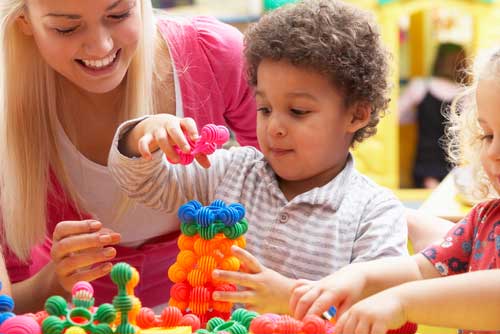
Playtime for children is not only fun but essential to help generate a rapidly developing brain. Jean Piaget, a Swiss psychologist, stated that children actively acquire knowledge through interacting with their physical environment. Because the ADHD child has problems with inattention, hyperactivity and impulsivity, learning can be a challenge both for the parents and the teacher. Providing a structured playtime both within and outside the classroom can benefit the child with attention span issues and provide successful results.
As a parent I made sure that my two children were actively involved with creative play at home with toys and games that allowed them to use their imaginations. A drawer became a boat for my 3 year old son and small toy people were my 5 year old daughter’s guests for tea.
In my sixth grade classroom, I was also aware of the need to give my students the same opportunity to play and learn at the same time. Recess was a very important time to not just provide a break but a venue to learn and develop social skills as well as a time for me to observe their cognitive performance. I then could develop different activities within the classroom to meet their individual needs and skill sets. Giving different options within the classroom also helps to decrease behavior problems. Interest areas in the classroom such as blocks(younger children), dramatic play, toys and games, art, music and movement, cooking, computers allowed the kids to have hands on playtime. ADHD kids are usually very tactual and visual so structured play would allow them:
1) Energy breaks to help increase attention
2) A typical lesson is one large block of time but incorporating games etc will play to their strengths and help with focus.
3) Structured games during recess, making the choice for them, decreases behavior issues.
These areas were especially beneficial for kids who had limited focus. Blocks became imaginary castles where a prince or princess could reign. Games with friends helped with following directions and social skills. Art and music were always my favorite activities because it is a wonderful outlet for expressing feelings and help a child to find his inner artist. Cooking if the school has access to a kitchen is also a fun place to help follow directions and bring home ideas to “play” with their family at home during mealtimes.
Re-creation makes us new again. The memory of playful experiences can reduce stress and provide comfort and reassurance. It is only when we integrate play, love and work that we as children and adults can live a happy, healthy and productive lives.


